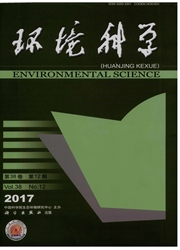

 中文摘要:
中文摘要:
采用模拟UV-B辐射增强方法研究了UV-B辐射对我国亚热带常绿阔叶林顶极种青冈(Cyclobalanopsis glauca)叶片化学组成及其凋落后分解和养分释放的影响.结果显示,增强的UV-B辐射使青冈凋落叶中的N、K和P含量分别显著增加了154.9%、29.8%和9.7%(P〈0.05),使凋落叶中的C∶N、木质素∶N和C∶P比分别显著降低了60.5%、61.7%和8.5%(P〈0.05),对C和木质素含量的影响不显著.在随后1 a的分解过程中,生长期间接受增强UV-B辐射的凋落叶分解得更快,但与对照组差异不显著(P〉0.05).生长期间接受增强的UV-B辐射促进了P元素的释放,减缓了N元素的富集,对K元素释放无影响.本研究结果有助于全面认识UV-B辐射增强背景下我国亚热带森林生态系统的生物地球化学循环特征.
 英文摘要:
英文摘要:
A experiment on leaf litter decomposition was carried out to evaluate the effects of UV-B radiation on the chemical composition and subsequent decomposition of leaf litter in humid subtropical forest systems.The leaf litter was derived from Cyclobalanopsis glauca seedlings exposed to elevated and ambient ultraviolet B(UV-B) radiation treatments during growth for one year.The results showed that UV-B treatment significantly increased the original N,K and P content of leaf litter by 154.9%,29.8% and 9.7%,respectively,and decreased the ratios of C∶ N,lignin∶ N and C∶ P of leaf litter by 60.5%,61.7% and 8.5%,respectively(P 0.05),but had no significant effect on C and lignin content.The decomposition of leaf litter derived from seedlings exposed to elevated UV-B treatment during growth was faster,but did not show significant difference from that of ambient UV-B treatment.Exposure to elevated UV-B radiation during growth did not significantly influence the K release,but promoted the P release and retarded the N accumulation during leaf litter decomposition.Our result will contribute to the better understanding of the role of UV-B radiation in moist subtropical forest ecosystem.
 同期刊论文项目
同期刊论文项目
 同项目期刊论文
同项目期刊论文
 Leaf litter decomposition rates of eight tree species within a zonal gradient of Chinese forests: in
Leaf litter decomposition rates of eight tree species within a zonal gradient of Chinese forests: in Elevated UV-B radiation did not affect decomposition rates of needles of two coniferous species in s
Elevated UV-B radiation did not affect decomposition rates of needles of two coniferous species in s Elevated UV-B radiation increased the decomposition of Cinnamonum camphora and Cyclobalanopsis glauc
Elevated UV-B radiation increased the decomposition of Cinnamonum camphora and Cyclobalanopsis glauc Carbon sequestration by Chinese bamboo forests and their ecological benefits: assessment of potentia
Carbon sequestration by Chinese bamboo forests and their ecological benefits: assessment of potentia 期刊信息
期刊信息
